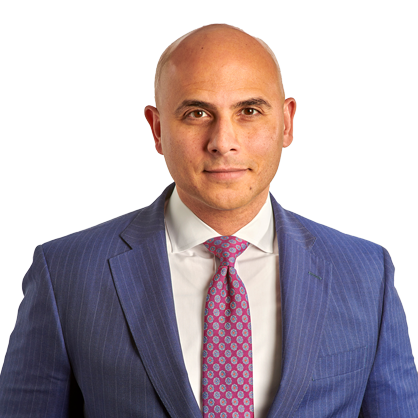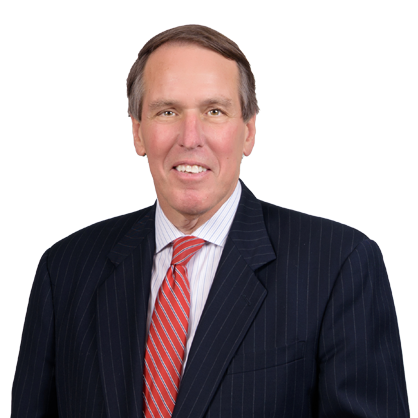Insights
Thought Leadership
Day Pitney White Collar Roundup – February 2023 Edition
When You Know, You 'Know': Supreme Court Eyes FCA Scienter Standard
The U.S. Supreme Court has granted certiorari in a pair of consolidated cases that could dramatically reshape the scienter standard for the False Claims Act (FCA), 31 U.S.C. 3729 et seq. The cases, U.S. ex rel. Schutte v. SuperValu, Inc., No. 20-2241, and U.S. ex rel. Proctor v. Safeway, Inc., No. 20-3425, both originate in the Seventh Circuit Court of Appeals.
In general, the FCA imposes liability on any person who "knowingly presents … a false or fraudulent claim for payment" to the government. At issue in Schutte and Proctor is the standard that a plaintiff asserting an FCA violation (often a qui tam relator) must meet in order to prove that the defendant "knowingly" submitted false or fraudulent claims.
The statute generally defines "knowingly" to mean that a defendant (i) has "actual knowledge" of the falsity of their statement, (ii) acts with "deliberate ignorance" regarding the truth or falsity of their statement, or (iii) acts in "reckless disregard of the truth or falsity" of the information submitted to the government. The open question to be addressed by the Supreme Court is whether a defendant acts with "reckless disregard" of the truth when their conduct was not "willful"—in other words, when the defendant's interpretation was erroneous but "objectively reasonable" and no "authoritative guidance" discouraged such interpretation. The Supreme Court previously applied this standard to narrow the scienter standard under the Fair Credit Reporting Act in the well-known case of Safeco Insurance Co. of Am. v. Burr, 551 U.S. 47, 52 (2007).
Split panels of the Seventh Circuit held in both Schutte and Proctor that the Safeco standard also applies to the FCA. Thus, a defendant does not act with reckless disregard of the truth under the FCA provided that its interpretation of the relevant regulation or statute has a "foundation" in the "less-than-pellucid statutory text" and was not contrary to any case law or authoritative agency guidance.
The Safeco standard gives government contractors substantial leeway to interpret ambiguous statutes and regulations. Even an erroneous interpretation of a given regulation may be objectively reasonable if it is reasonably grounded in the text of the regulation and there is no authority cautioning against it. Thus, for example, the Seventh Circuit held that the defendant in Schutte, a pharmacy benefit manager, acted objectively reasonably in interpreting the Medicare and Medicaid definition of "usual and customary" prices when it charged the government for the full retail price of prescription drugs, which ranged from eight to 15 times higher than the prices charged to many customers. The customers had frequently accessed deeply discounted prices through a widely used price-matching program. The defendant did not include those deeply discounted prices on its sales figures reported to the Centers for Medicare & Medicaid Services. Similarly, the defendant in Proctor was found to have interpreted Medicare and Medicaid regulations reasonably, despite not reporting the prices it had charged through pharmacy discount programs. Both defendants successfully persuaded the Circuit that the definition of usual and customary pricing (at least for Medicare and Medicaid purposes) was subject to multiple reasonable interpretations, some of which could exclude temporary discount programs.
Of further interest, the Court chose to grant certiorari on this issue before any significant Circuit split emerged. The closest any Court of Appeals has come to addressing but rejecting the Safeco standard appears to be the case United States ex rel. Sheldon v. Allergan, No. 20-2330, in which an evenly divided en banc Fourth Circuit narrowly upheld the district court's dismissal of an FCA claim based in part on the Safeco scienter standard. Other Courts of Appeal that have considered this issue, including the Third, Eighth, Ninth, Eleventh and D.C. Circuits, have upheld the application of the Safeco scienter standard to the FCA. A Supreme Court decision affirming Schutte and Proctor could significantly streamline a number of FCA cases by resolving questions of law regarding objective reasonability at the pleading stage and eliminating discovery into the subjective intent of the defendant. By the same token, a decision reversing those results could introduce even more complexity to this evolving area of the law.
The Rewards for Coming Clean: Criminal Division Revises Corporate Enforcement Policy
Before an audience of prosecutors, defense counsel, professors and students alike at Georgetown University Law Center last month, Assistant Attorney General Kenneth A. Polite Jr. delivered remarks on significant changes to the Corporate Enforcement Policy of the Department of Justice's (DOJ) Criminal Division. The revisions disclosed in January represent the first significant changes to the Corporate Enforcement Policy in more than five years.
Polite's speech began by highlighting the successes of the Criminal Division's Fraud and Money Laundering and Asset Recovery Sections before teeing up what's to come in the realm of corporate criminal enforcement.
The primary purpose of the Corporate Enforcement Policy revisions is to further encourage companies to voluntarily self-disclose misconduct, which has long been a tenet of Criminal Division policy. In particular, Polite announced that even if there are aggravating circumstances that would normally tend to disqualify companies from any presumption of a declination, prosecutors may nonetheless determine that declining to prosecute is an "appropriate outcome," provided that (and this is a rather significant "provided") a company can demonstrate that (i) its voluntary self-disclosure was made immediately upon becoming aware of the misconduct; (ii) at the time of the misconduct and disclosure, the company had an effective compliance program and a system of internal accounting controls in place that enabled it to identify the misconduct; and (iii) the company provided extraordinary cooperation with the DOJ's investigation and undertook extraordinary remediation of the problem. The objective is to encourage companies to take "extraordinary" action before, during and after the Criminal Division investigation.
Other enhanced incentives also apply. If companies voluntarily self-disclose misconduct, fully cooperate, and timely and appropriately remediate, the Criminal Division will now recommend at least 50 percent and up to 75 percent off the low end of the fine range in the Sentencing Guidelines, save for cases of criminal recidivism. This represents a material increase from the previous maximum reduction of 50 percent off the guidelines range. Further, in such circumstances, the Criminal Division will not always require a corporate guilty plea, absent multiple or egregious aggravating circumstances. This is true even for criminal recidivists; while recidivism remains relevant and important, it alone "will not always mean a plea." This policy now applies to all Criminal Division corporate resolutions, not only voluntary self-disclosure cases.
Finally, in circumstances where companies do not voluntarily self-disclose but still fully cooperate and remediate the misconduct, the Criminal Division may recommend a reduction of up to 50 percent off the low end of the guidelines' fine range, or twice the maximum reduction available under the prior Enforcement Policy. Unsurprisingly, this 50 percent reduction will "not be the new norm" but rather will be reserved for companies that "truly distinguish themselves and demonstrate extraordinary cooperation and remediation." Polite noted that the immediacy, consistency, degree and impact of the cooperation are the concepts that determine what qualifies as extraordinary. On the other end of the spectrum, Polite referred to the Glencore case, in which the company received limited credit for cooperation and remediation under Criminal Division policies.
Overall, the changes to the Criminal Division's Corporate Enforcement Policy confirm the DOJ's continuing perspective that one of the best ways to combat corporate misconduct is to incentivize corporations to partner with the DOJ in identifying it and rooting it out. By enhancing the incentives available to cooperating companies, the changes may help do just that.
Our Doors Are Open Too: U.S. Attorneys Announce Self-Disclosure Policy
Perhaps unsurprisingly, in light of AAG Polite's remarks discussed above, the DOJ even more recently, in late February 2023, also issued a new Voluntary Self-Disclosure Policy specifically applicable to all U.S. Attorney's Offices (USAOs). The Voluntary Self-Disclosure Policy, which is effective immediately, governs companies that self-report their own misconduct in advance of any government investigation. As the press release announcing the new policy explained, the goal is to both incentivize voluntary self-disclosure and standardize how USAOs across the country define and credit such self-disclosures.
While self-disclosures will still be evaluated on a case-by-case basis, the Voluntary Self-Disclosure Policy sets out general requirements, including that the disclosure is voluntary, timely and complete. A self-disclosure is voluntary under the policy when the company does not have a preexisting obligation to disclose the misconduct. It is timely when made before an "imminent threat of disclosure or government investigation" and prior to the misconduct being publicly disclosed or otherwise known to the government. The disclosure must also be made within a "reasonably prompt time" after the company becomes aware of the misconduct. Finally, a self-disclosure is complete when it includes "all relevant facts concerning the misconduct" known to the company at the time of disclosure. While a company may rely on a preliminary investigation of the misconduct, USAOs expect that the company will provide factual updates on any subsequent internal investigations.
The Voluntary Self-Disclosure Policy offers tangible benefits. Notably, absent certain aggravating factors, USAOs generally will not pursue a guilty plea from the company. In addition, USAOs may choose not to seek a criminal penalty and, in any event, will not seek such a penalty greater than 50 percent of the low end of the applicable Sentencing Guidelines' fine range. And even when USAOs pursue a guilty plea, they will recommend a reduction of 50 percent to 75 percent from the low end of the applicable fine range.
Whether a company voluntarily self-discloses potential criminal conduct is one of the most important decisions it will make after it becomes aware of the misconduct. The Voluntary Self-Disclosure Policy announced in February, along with Polite's remarks on the related changes to the Criminal Division's Corporate Enforcement Policy, underscores that—throughout the DOJ and across the country—prosecutors are opening the doors ever more widely to reward (and incentivize) self-reporting.
Not to Be Left Out, the SEC Announces Examination Priorities
Earlier this month, the Securities and Exchange Commission's (SEC) Division of Examinations published its 2023 Examination Priorities report, in which it highlighted the key compliance areas that will be the focus of its 2023 examination program. In its report, the Division of Examinations emphasized that, despite all of the "tumult and change" of the past several years, the "four pillars" of its mission remain to (a) promote compliance, (b) prevent fraud, (c) monitor risk and (d) inform policy.
To those ends, the SEC's report reinforces many of the areas of interest it has had in recent years, including cryptocurrency investing and information security. It also identifies other areas of focus based on SEC rules that recently went into effect. Among the Division of Examinations' priorities are four "new and significant focus areas" and nine additional priorities for 2023. The full 24-page report is worth a read, but we highlight and discuss the four new and significant focus areas here.
(1) Compliance with new investment adviser and investment company rules. Examinations will focus on the new Marketing Rule (Advisers Act Rule 206(4)-1) and whether registered investment advisers (RIAs) have adopted and implemented written policies and procedures that are reasonably designed to prevent violations of the new rule, as well as whether RIAs have complied with the new rule's substantive requirements.
(2) Investment advisers to private funds. Examinations will review advisers' fiduciary duties and other issues under the Advisers Act and will assess risks, including a focus on compliance programs, fees and expenses, custody, the new Marketing Rule, conflicts of interest, and the use of alternative data. The Division will also review private fund advisers' portfolio strategies, risk management, and investment recommendations and allocations.
(3) Standards of conduct (including Regulation Best Interest). Examinations will review whether broker-dealers and RIAs are complying with their respective standards of conduct, including with respect to investment advice and recommendations, investor disclosures relating to material facts and potential conflicts of interest, the process for best-interest evaluations, and suitability assessments. Focus on fiduciary conduct is not new, but recent enforcement activity suggests this may be a heightened area of scrutiny.
(4) ESG investing. Examinations will continue its focus on environmental, social and governance (ESG)-related advisory services and fund offerings, including whether funds are operating consistently with their disclosures. In addition, Examinations will assess whether ESG products are appropriately labeled and whether recommendations of such products to retail investors are made in the investors' best interests.
While emphasizing the importance of regular ongoing examinations of investment advisers and broker-dealers, the Division of Examinations will prioritize examinations of entities that have never been examined along with those that have not recently been examined. As a result, whether an adviser or a broker-dealer has been regularly subject to examination or has flown under the radar in recent years, there's no better time than the present to review, and make any needed improvements, to be in compliance with the Division's significant areas of focus.




